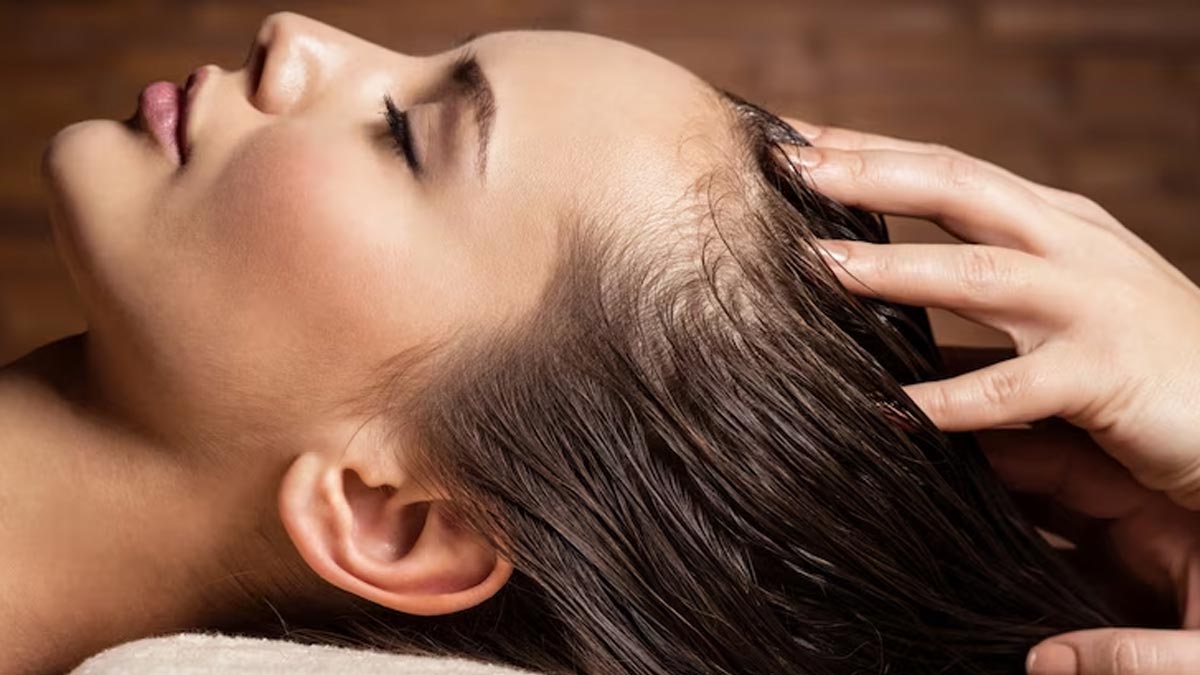
Don’t we love rainy days especially after battling a hot summer season? Surely… but do our hair feel the same? Probably not. This is because monsoon can be detrimental to our hair due to increased humidity and moisture. It can lead to frizz, limpness, and a higher risk of fungal and bacterial infections on the scalp. The excess moisture can also make the hair more prone to breakage and damage. Discussing the same, Dr Seema Oberoi, Consultant-Dermatology, CK Birla Hospital, Gurugram, shares some insights.
Also Read: 7 Things Related To Hair Oil Answered By A Dermatologist
Effects Of Monsoon On Hair Quality

“Our hair does not like the monsoon season,” says Dr Oberoi. “There is so much moisture in the air, which makes the hair frizzy and more prone to hair fall and more. This is because wet or damp hair is much weaker than dry hair - just like a piece of paper, which is strong when dry and weak when wet,” she explains.
Some of the common effects of monsoon on hair include:
Frizzy hair
The high humidity levels in the air can cause the hair to absorb moisture, leading to frizz and unruly hair. The excess moisture disrupts the hair's natural structure, making it difficult to style and manage.
Dull hair and lack of shine
The moisture in the air can make the hair appear dull and lacklustre. It can weigh down the strands and reduce their natural shine, making the hair look lifeless.
Increased hair fall and breakage

Excessive moisture can weaken the hair strands, making them more prone to breakage. The increased humidity can also lead to a damp scalp, creating a favourable environment for fungal and bacterial growth, which can further contribute to hair fall.
Also Read: Preparing for a Hair Transplant: What to Expect Before, During, and After the Procedure
Scalp issues
The damp and humid conditions during the monsoon can cause scalp problems such as itchiness, dandruff, and fungal infections. These conditions can lead to discomfort and affect the overall health of the hair.
To minimise the effects of monsoon on hair, it is important to take proper care and precautions. Dr Oberoi warns against taking hair-care lightly. “You need to be careful while handling your hair. Do not comb when your hair is wet, avoid using harsh chemicals and trying things like straightening, rebonding or colouring. Use milder shampoos and good conditioners,” she advises.
Furthermore, keep the hair and scalp clean and dry, use anti-frizz products or serums, tie your hair up to prevent exposure to rainwater, and protect the hair with a hat or umbrella when outdoors.
Benefits Of Hair-Oiling

Here are some of the benefits of applying hair oil:
- Acts like a moisturiser for your hair; those with dry, brittle hair can apply
- Can provide hydration and shine to your hair
- Can help nourish the scalp
- Helps strengthen the hair strands from within
- Shields the hair from environmental stressors such as pollution, harsh sunlight, and heat styling tools
The expert warns against the use of random hair oils and says, "Most of the hair oils, which have very strong fragrances should be avoided because not only can they damage the hair, but they can also be a reason for a lot of allergies and pigmentations.”
Expert Shares The Best Hair Oil For Monsoon
“The best oils to be used are the bland oils and among them coconut oil wins over all other types of oils,” said Dr Oberoi. A study published in the International Journal of Trichology found that coconut oil reduces the protein loss for both undamaged and damaged hair when used as a prewash and post-wash grooming product. It absorbs into hair strands better than mineral oil and other kinds of oils, which protects hair from breakage and split ends.
Dr Oberoi shares, “The best way to apply it is to apply it over the lengths, leave it for an hour or so and then wash it off. This routine can be done maybe twice a week.”
Conclusion
The effectiveness of hair oiling can depend on one's hair type and preferences. Some people may find that certain oils work better for their hair than others. For some, hair oiling may not be that helpful. It's recommended to choose high-quality oils, apply them in moderation, and adapt the practice based on personal hair needs.







